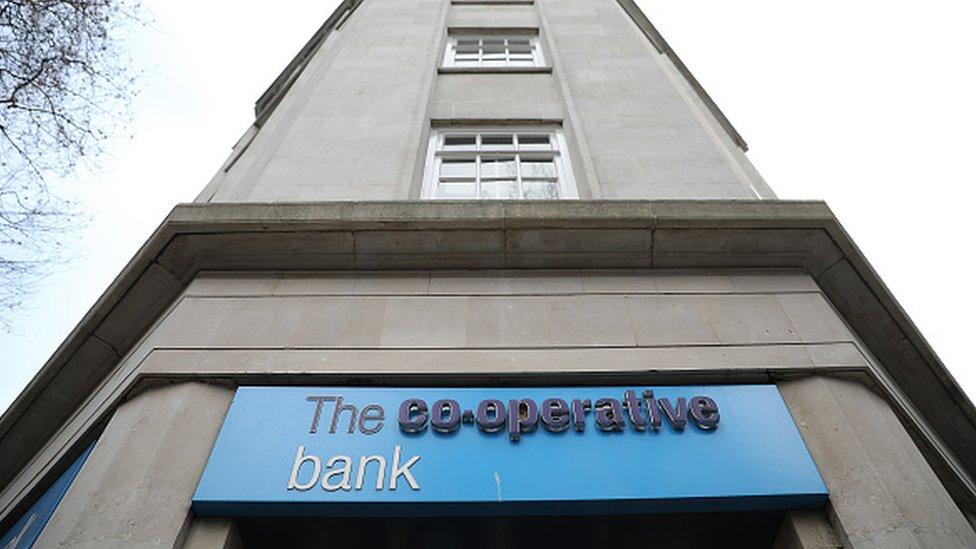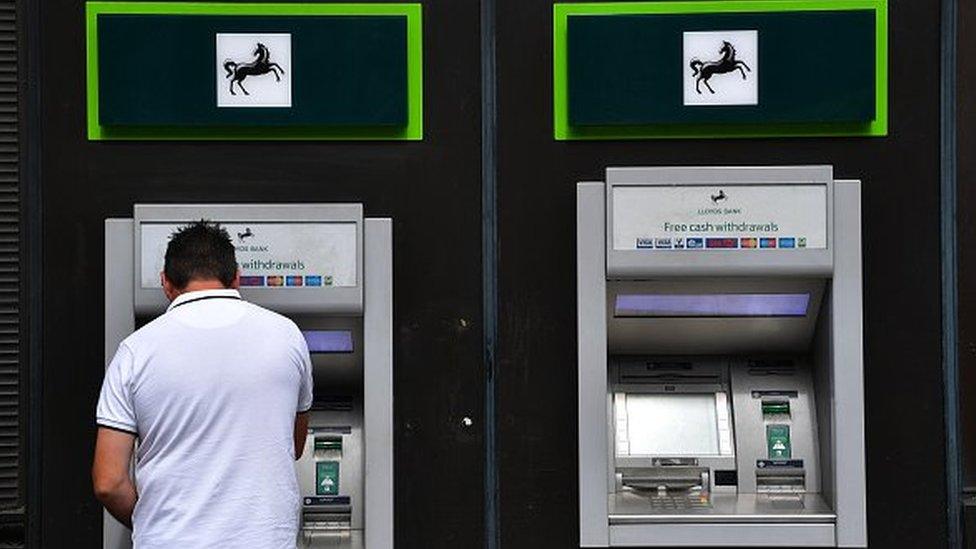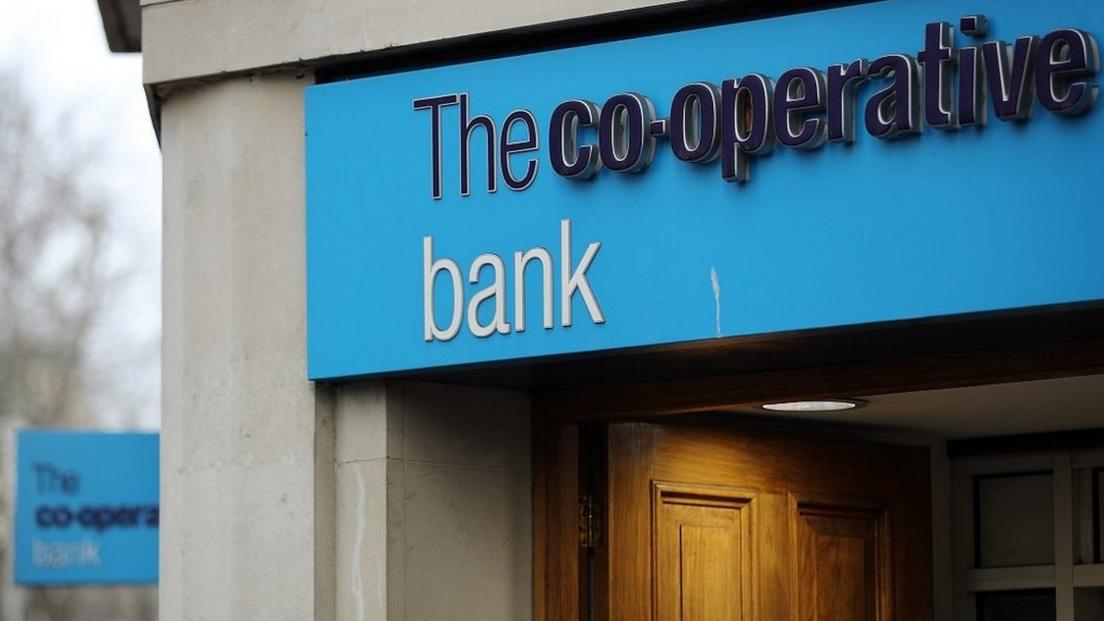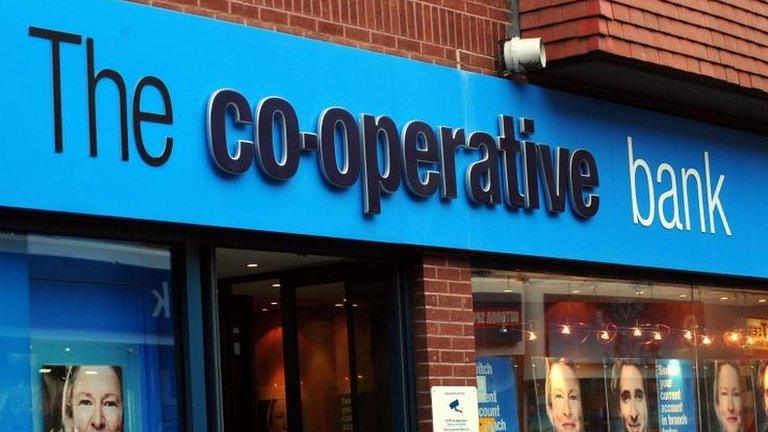Co-operative Bank agrees £700m rescue package
- Published

The Co-operative Bank has secured a £700m rescue package to stop the lender from being wound up.
Investors have agreed to swap their debt for a stake in the bank.
The bank also said it would to separate its pension fund from the Co-operative Group's scheme, which has £8bn of liabilities.
The Bank of England's Prudential Regulation Authority said it had accepted the plan to return the bank to a firm footing.
"Supervisors will remain closely engaged with the bank while the actions announced today are taken forward. Implementation is subject to certain regulatory approvals," said the PRA, which is responsible for supervising the UK's banks and insurance companies.
The debt-for-equity swap with hedge funds means that the Co-op Group's stake in the bank will fall from 20% to about 1%.
The Co-op also said that the relationship agreement between the group and the bank, covering the promotion of bank services to members of the wider business and other matters, "will naturally fall away and come to a formal end in 2020".
It added that it "is supportive of the plan and intends to vote in favour of the capital raising".
The Co-op Bank has been been struggling for four years since an abortive attempt to buy 632 branches from Lloyds revealed a £1.5bn hole in its finances.

After failing to find a buyer for the bank, the existing owners, which are predominantly US investment funds, have agreed to write off £443m they are owed and will sell £250m worth of new shares.
Ethical banking
The bank, known for its ethical approach, has been under intense supervision from the Bank of England for many months. Wednesday's injection of fresh money will spare the regulator the job of stepping in to manage a wind-up of the bank.
The investors will also pump £100m into the bank's pension scheme over the next 10 years to secure its separation from the wider Co-op Group pension scheme.
Despite its troubles, Co-op Bank's customers have proved loyal, with nearly four million account holders and mortgage borrowers sticking with the bank despite its financial difficulties and a sex and drug scandal involving its former chairman, Methodist minister Paul Flowers.
The bank says it will continue to run itself with the ethical values it has observed since its founding in 1872.
- Published28 June 2017
- Published26 June 2017

- Published7 April 2017
